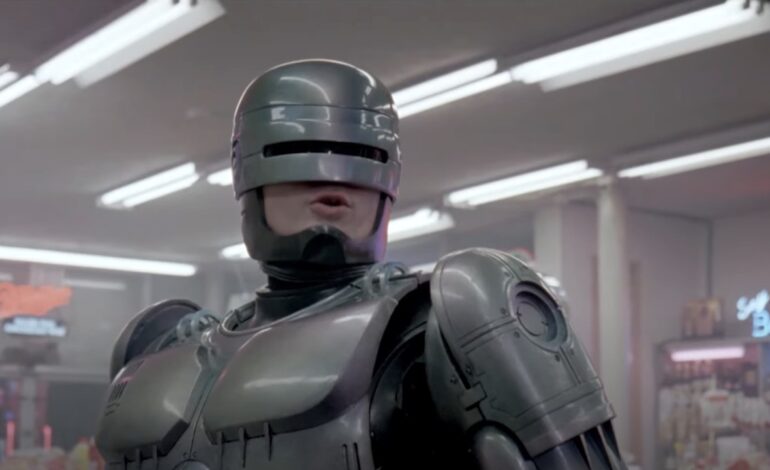“RoboCop: How a 1987 Classic Still Reflects Today’s Corporate Concerns”

RoboCop, the iconic film released in 1987, stands out as an action movie that makes a significant political statement still relevant today. Directed by Paul Verhoeven, the film critiques corporate power and its consequences on society. The narrative unfolds in a dystopian version of Detroit, where crime and chaos reign, prompting the city to turn to private corporations for solutions.
The Dystopian Landscape of 1980s America
Set against the backdrop of the mid-1980s, RoboCop reflects a period when cities in the Rust Belt were experiencing severe decline. With escalating crime rates, politicians across the political spectrum sought to restore order. This was also a time marked by Ronald Reagan‘s policies promoting corporate deregulation, leading to an increased reliance on private enterprises to address public issues previously handled by the government.
In this context, the film introduces Omni Consumer Products, a powerful corporation that takes over police duties in a chaotic Detroit. Their solution? The creation of RoboCop, a cyborg law enforcement officer portrayed by Peter Weller. The character embodies both a hope for safety and a critique of corporate dominance.
Verhoeven’s Satirical Vision
Paul Verhoeven is known for his sharp satirical style, which can sometimes be polarizing. In RoboCop, he clearly positions the villains not as the street gangs but as the executives at Omni Consumer Products, particularly Dick Jones, played by Ronny Cox. While RoboCop appears as the hero, the film exposes the darker side of corporate influence and the moral compromises that come with it.
“Corporations are evil, and giving them too much power guarantees corruption,” states Verhoeven’s narrative.
This perspective resonates powerfully today, nearly four decades after the film’s release. The themes of corporate overreach and societal decay are echoed in contemporary discussions about the role of big businesses in public life. Unlike many other action films from the 1980s, which often conveyed safer political messages, RoboCop engages with more provocative themes, challenging viewers to reconsider the implications of unchecked corporate power.
Interestingly, while some viewers may view the film as a product of its time, it continues to spark conversation about the contemporary landscape of corporate influence and governance. As discussions around corporate responsibility and ethics grow louder, Verhoeven’s work has gained renewed relevance.
As fans continue to celebrate the film, there is speculation about potential sequels. Peter Weller has expressed interest in returning to the iconic role, suggesting that the themes of RoboCop may yet find new audiences in today’s context.
RoboCop remains a landmark in action cinema, not just for its thrilling narrative but for its enduring critique of the interplay between corporate power and societal welfare. As viewers revisit this classic, it invites reflection on the state of modern society and the role of corporations in shaping our lives.





